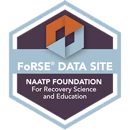December 5, 2023
High-Functioning Alcoholics: More Than Just a Danger to Themselves.

A hospital. Early morning. A patient flatlines. A surgeon gets a page. Complications they say, from the night before. The surgeon racks his brain, hoping to remember where he could have slipped up. But his search for the memory comes up empty. In fact, he can’t remember performing the surgery at all. His last memory from the previous night? Opening his third bottle of wine.
To most, tolerance is the ability to handle alcohol. To those suffering from Alcohol Use Disorder (AUD), it’s the ability to mask the fact that they’re under the influence, potentially making high-functioning alcoholics extremely dangerous.
According to the Diagnostic and Statistical Manual of Mental Disorders (DSM5), a key indicator of AUD is an increasing tolerance. Put simply, to continue receiving the mind-altering effects of alcohol, one must consume larger and larger amounts. So, despite blood alcohol content (BAC) spiking, those with AUD are able to function.
Unable to control their consumption, those suffering with AUD will often push their consumption to the point at which blackouts begin to occur. At this level, normal cognitive functions like attention, judgement, and motor skills become significantly impaired, making performing tasks that require a high degree of skill, like surgery, particularly dangerous.
In the case of our surgeon, a blackout became life threatening. Despite being in a blackout state, and unable to remember anything longer than the previous three minutes, his rigorous training, precise skills, and elevated alcohol tolerance gave those around him the impression he was sober.
This is because while a blackout state impairs the brain’s ability to convert short-term memory into long-term memories, the impressive tolerance of the many who suffer from Alcohol Use Disorder allows them to remain semi-functional.
It is essential for those suffering with AUD in any profession to receive treatment for Alcohol Use Disorder, but even more so for those whose positions involve a substantial amount of risk. For our surgeon, this mistake could cost his patient their life, and he, his livelihood.
But it is often this very notion that stops professionals from seeking help. The stigma that comes with AUD, and the regulations surrounding substance abuse in the workplace, not only dissuades people, it stops them from exploring recovery entirely, with the fear that they will be ostracized socially or professionally blacklisted.
Dilworth Center has been providing treatment for alcoholism, drug addiction and associated mental health conditions for over 30 years. We offer a host of intensive outpatient recovery programs. Our services include programs for adolescents, young adults, adults, families, and professionals. Additionally, we offer post-treatment relapse prevention. In fact, we are a preferred treatment provider for the FAA, NC Board of Nursing, Physician’s Health Program, NC Caring Dental Professionals, and Lawyer’s Assistance Program.
Our initial assessment ensures that we tailor recovery programs to the needs of every individual, and our relapse prevention program gives patients the accountability and community to maintain long-term, robust sobriety.
We provide the tools for those suffering from Alcohol Use Disorder to get sober and stay sober. Dilworth Center alumni maintain an industry-leading 80% sobriety rate after two years, because we don’t just give our patients the ability to survive without alcohol. We give them the resources to thrive without alcohol.
Find help for someone suffering from Alcohol Use Disorder today. Fill out the form below to take the first step in the recovery journey.






